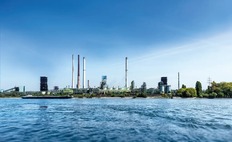- The plant will involve investments of over €2 billion.
- Production is set to start in 2026.
- The plant will produce 2.5 million metric tons of low-CO2 steel annually.
- The project aims to cut CO2 emissions by 3.5 million metric tons.

Investment and Support
thyssenkrupp is investing over €2 billion in constructing Germany's largest direct reduction plant for low-CO2 steel at its Duisburg site. The Executive Board has released the necessary capital, and the Supervisory Board supports this decision. The project is still subject to public funding.
Production Capacity and Environmental Impact
The plant will have a capacity of 2.5 million metric tons of direct reduced iron, significantly larger than initially planned. This will help avoid the emission of 3.5 million metric tons of CO2 annually, contributing to national and European climate targets.
Technological Innovation
As part of the tkH2Steel® transformation project, thyssenkrupp will replace coal-based blast furnaces with hydrogen-powered direct reduction plants. The iron produced will be liquefied in specially developed melting units to produce high-quality hot iron, allowing for an efficient transformation within the existing plant structure.
Timeline and Future Goals
The contract award for the plant is planned for fall 2022, with production set to start in 2026. By 2030, thyssenkrupp aims to produce around five million metric tons of low-CO2 steel, achieving CO2 savings of over 30 percent. The project is expected to generate innovation and employment in the Ruhr region and beyond.

